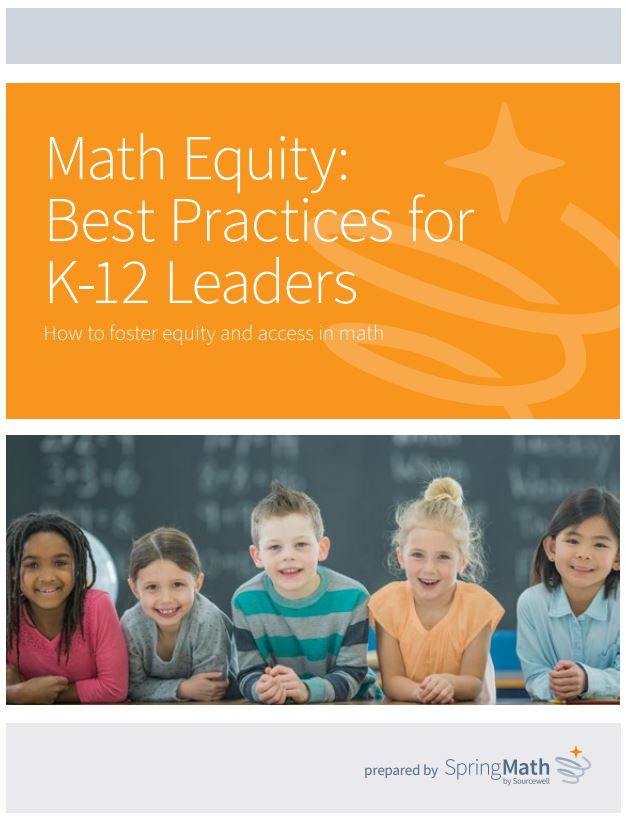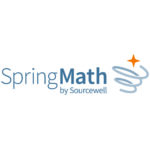Proficiency in science, technology, engineering, and math is key to global competitiveness as a nation and a higher standard of living as an individual. Disparities in access to high-quality math instruction and rigorous, research-based curriculum have contributed to a significant opportunity gap in the U.S.
Math proficiency in the early grades is a major factor in predicting future academic success. Research shows that students with consistently low math skills in grades K–5 are much less likely to graduate from high school and attend college.
Why effective math instruction is critical
All students deserve a level playing field that includes access to viable learning opportunities.
This is true regardless of race, religion, family income, geographic location, or other circumstances.
Effective math instruction is a central element of student equity. This is true whether students want to pursue a STEM-related career or even if they’re looking at other fields that require a college degree: As educators know, students typically must demonstrate proficiency in college-level math if they want to earn a college degree in any subject.
Mathematical knowledge is a foundation for many areas of study, and math proficiency is a strong predictor of a student’s future success. For instance, in a 2011 study, researchers found that K–5 students with consistently low math skills were much less likely to graduate from high school or attend college.
For students who are particularly talented in math, the results are equally as important. As stated in a 2015 Scientific American article by Amber Williams, “For both males and females, mathematical precocity early in life predicts later creative contributions and leadership in critical occupational roles.”
In short, math achievement is a key driver of success. Proficiency in math opens many more pathways for the future, while students who struggle in this subject have fewer opportunities. Ensuring that all students have an equal chance at success, therefore, hinges on effective math instruction.
Key components for student math equity
High-quality instruction
All students deserve access to high-quality math instruction. Every child has the right to be taught by a well-trained and certified teacher who uses effective curriculum materials and pedagogies grounded in the science of math. High-quality instruction is driven by student achievement data, with teachers working in teams to analyze student data and differentiating instruction based on students’ individual learning needs. High-quality instruction also relies on teachers receiving frequent, ongoing professional learning opportunities to ensure they’re using the most up-to-date and effective methods.
Targeted support
When students fail to make adequate progress in math, educators need to identify those students’ struggles early on and offer support to get them back on track. Assessing students’ skills at regular intervals can help teachers do this effectively. Aside from formative assessments to monitor student learning and summative assessments to measure growth and mastery of content, universal screenings two to three times per year can help teachers quickly identify students struggling with grade-level skills to pinpoint further intervention. Teachers can use screening results as well as other assessment measures to determine students’ specific academic needs and follow up with highly targeted interventions that deliver just the right instruction for success. Administering regular and frequent progress-monitoring measures that are directly tied to the prescribed interventions can help teachers ensure that interventions are having the desired effect. This combination of targeted strategies can help ensure that instructional activities are appropriately matched for each student’s needs.
Download our Math Equity: Best Practices for K-12 Leaders here.


Build teacher confidence. Accelerate student achievement with SpringMath.
What is your school or district doing to address math equity and access? What are you biggest obstacles?
Sponsored Content Disclaimer:
Sponsored Content in Partnership With NASSP
NASSP allows select groups to share information and thought leadership with our program audiences.

